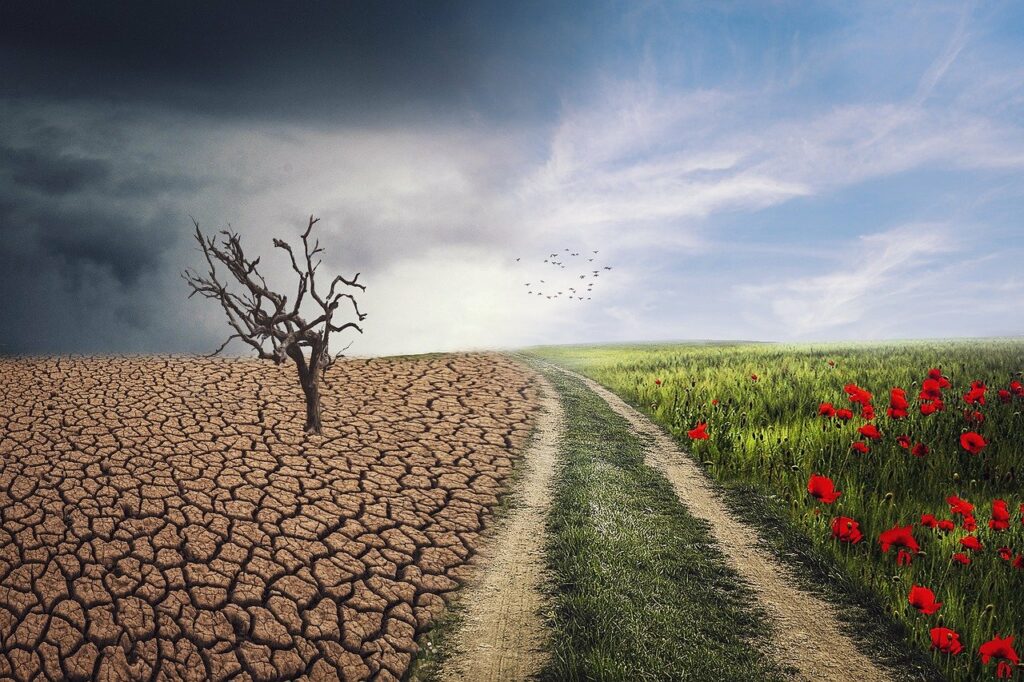What is your topic of choice to spark a good argument? Politics and religion aside, the next best “sure thing” to cause people to heatedly discuss topics they have an opinion on but may not have any substantial scientific expertise on has to include both climate change and genetically modified organisms (GMOs). Climate change referring to the increased presence of carbon dioxide (CO2) in the atmosphere and GMOs referring to any organism that has had manipulation done to the genetic code to result in a “modified” version of that organism.
As with any scientific debate, literature and support can be found published that will solidify either side of the argument. The difference usually lies in the ability of the presenter to persuade their audience to come around to their way of thinking. The reality of the situation is that not all published scientific work is of similar quality and while some of that work is top quality, a lot of the work is complete junk. I had an attorney once tell me that any published science is good enough and that if the work gets published, that is it passed the “peer-review” process, then that work could be used to help formulate an opinion and therefore a case or argument. Publication is all it takes, and the science is then credible to base an argument on it for all humankind.
Here is an article that was just published in December of 2019 that hits the two sensitive areas described above. Whether or not you buy into the climate change story or profess that it is simply an unrecorded cycle of the earth dating back to prerecorded history and all will be fine, the level of CO2 in the atmosphere is rising. Is it because of human activity? Is it because of increased volcano activity? Is it because of rampant deforestation and therefore the lack of trees and plants to convert that CO2 back to oxygen? Is it a combination of these and many other factors? GMOs are stereotypically the creation of the mad-scientist working for the massive corporate entity that produces a “better” thing that proves to be evil or cancer causing or something of that nature.
This new article marries these two issues apparently for the good of the planet.
CO2-consuming bacteria could save the planet
Researchers have engineered a strain of CO2-consuming bacteria that can generate all its biomass from atmospheric CO2, rather than sugar. These bacteria could pave the way to novel, carbon-efficient technologies.
This form of bacteria is not the run-of-the-mill bug as it has been modified as to what it seeks out to use for food and had the old genetic material that told the bug what food used to be removed. It is a double-whammy of genetic modification.
Now, after nearly a decade’s worth of study design, genetic engineering and lab-based evolution, Ron Milo and his team of researchers from the Weizmann Institute of Science (Rehovot, Israel) may have found a solution – genetically engineered CO2-consuming bacteria.
In a groundbreaking study, published recently in Cell, the researchers described their success in engineering Escherichia coli that produce all their biomass from atmospheric CO2, negating their need for sugar.
This was completed by manipulating the crucial genes required for the process of converting carbon from atmospheric CO2 into biological molecules, then adding these to E. coli, and removing the genes needed for sugar metabolism.
The bacteria were then slowly weaned off sugar and given CO2, at concentrations about 250 times greater than the earth’s atmosphere, to realign the taste buds of the bug. If successful and these bacteria are able to scavenge the CO2, perhaps a solution may be reached regarding rising CO2 levels. Time will tell.
Some of the bacteria developed a taste for CO2, giving them an evolutionary advantage and ensuring this characteristic was passed onto descendants. After about 200 days, the bacteria had experienced a complete trophic mode change, meaning that some of the bacteria could now use CO2 as their only carbon source.
Only 200 days to notch an evolutionary change in bacteria. This is a spec on the timeline of evolution. It begs the question as to what is the stopgap measure if the bacteria begin to remove too much CO2 and the entire flora of the planet begin to slowly die from suffocation due to lack of CO2? I certainly would not want this to happen, especially if the increased greenhouse gas turns out to be the cyclic process of the earth over time and not due to human intervention of natural processes.
The article goes on to state that, “Currently, the bacteria still emit more CO2 during growth than they consume; however, the scientists intend to conduct further research in order to investigate whether the process could become carbon negative.” Still too early in concept but an interesting topic to track and see what happens in time.
The whole article can be found here: https://www.biotechniques.com/microbiology-virology/c02-consuming-bacteria-could-save-the-planet/?utm_source=Adestra&utm_medium=email&utm_term=&utm_content=CO%202%20-consuming%20bacteria%20could%20save%20the%20planet&utm_campaign=Daily%20NL%202019-12-16
As always, drop us a line through the contact form with any questions or comments.
Thank you!
Sincerely,
Dr. Joe Nieusma and the Superior Toxicology & Wellness Team
drjoenieusma@gmail.com
303-877-3684
www.superiortoxicology.com
